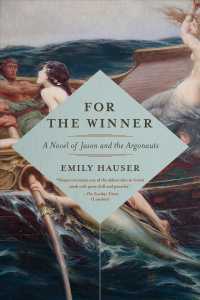- ホーム
- > 洋書
- > ドイツ書
- > Humanities, Arts & Music
- > Humanities
- > general surveys
Full Description
The book deals with what the author calls the new humanities: a broad and diversified front of orientations, directions, and turns grouped around five major currents: the digital humanities, engaged humanities, cognitive humanities, art-based research, and posthumanities. What links these approaches is their opposition toward the principles of the modern theory of humanistic cognition, which appears to be immaterial, external, impersonal, static, and neutral. Against this model, the new humanities posit a different type of cognition: embodied, penetrating the interior of the studied field, personalized (participatory), active (intervening), and situated (engaged). With this significant change, we proceed from the culture of disinterested observation, founded on the myth of contemplative view of the external world, to the real culture of participatory action, which is reconciled with the perspectivity and partiality of the subject's cognitive actions and which paves the way to reality from within and in its own right.
Contents
Author's Note - Part One - The Humanities of Yesterday and Today: In a Nutshell and Not without Simplifications - New Humanities in Poland: A Few Subjective Observations, Conjectures, and Refutations - Culture as Verb: Probing the Creativity of Cultural Action - The Other is in Us: Identity in the Times of Mobility (A Few Remarks on the Polish Experience) - Part Two - Toward the Innovative Polish Humanities: Text as a Laboratory: Traditions, Hypotheses, Proposals - Jan Błoński: Personal Hermeneutics - Janusz Sławiński: Structuralism in Action - Bruno Schulz: Art as Cultural Extravagance - Bibliography - Index








